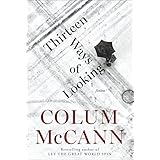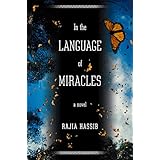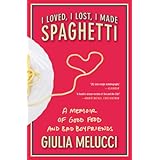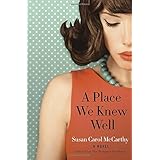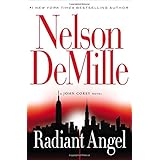If you're at all like me and tend to shy away from short stories, please don't let that keep you from the new collection, "Thirteen Ways of Looking," from Colum McCann. His prose has always been tight and exacting (he won the National Book Award for "Let the Great World Spin") so shorter pieces seem to be the perfect vehicle for showcasing his immense talent. In this case, there are only four entries, the title novella and three short but powerful stories.
Whether he's inside the head of an elderly man on the last day of his life, a young woman serving in Afghanistan, a middle-aged nun seeking closure on a violent incident from her youth, or a mother who believes she's caused her only child's death, McCann gets the emotional tone just right. How does he do it? A writer of his caliber must have been born with an uber-sense of empathy and compassion to be able to place readers so directly into someone else's shoes this way. I don't believe this can be taught (even though McCann is a creative writing professor at Hunter College).
From the moment Judge Mendelssohn opens his eyes on the last day of his life, the reader enters into the frustration of the elderly man whose deteriorating body has not kept up with his quick, vibrant mind. The slow realization that his caretaker has had to fix a diaper on him during the night, the quick anger when she doesn't respond immediately to his call, the humiliation he feels at being dependent, all of these visceral emotions play into our own worst fears.
And yet, this story is not in the least bit depressing. As the judge prepares for his daily ritual, the short walk down the street to his favorite restaurant for a fine lunch, he recalls the many highlights of his life, the long, successful career, the satisfying marriage, the accolades, all the accoutrements of a life well lived, and we feel that it's ok, it's as good a day as any to die. The how and why of the judge's demise is a satisfying little mini-mystery which adds layers to the secondary characters who might otherwise be seen as caricatures.
One of the most impressive and gut-wrenching bits of writing arises from the short story "Sh'hkol," in which the son of a woman who works as a translator and lives on a rocky promontory overlooking the North sea, goes missing a day after she has given him a wetsuit. With police and neighbors scouring the woods and shore, the former husband, who has been a noticeably absent father, shows up boiling over with blame and recrimination.
After hours of "whys," and "hows," and "how could yous," he falls exhausted into her bed. Depleted herself, she later eases in beside him, keeping to her own side of the bed, only to wake in the night to feel their bodies spooning in the old familiar way, his arm around her in a subconsciously protective embrace. These two disparate people, joined by memory and the agony of the loss they face together, are symbolic of the shared humanity McCann so eloquently writes about.
Those of you who have been following me for a while know that I often eschew my Irish roots in the fervent desire for a mysterious Italian in the wood pile. However, I believe I can say unequivocally that Irish storytellers like Colum McCann (think Frank McCourt, Anne Enright) seem to excel at capturing the pathos of everyday life. I had been searching for a transcendent read. I found it here.

